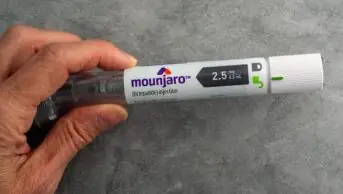
Dreamstime.com
Menopausal women frequently report cognitive deficits, particularly in higher-level skills used to control other cognitive behaviours — collectively known as executive functions (EF). A new therapy to address these deficits may be on the horizon, with promising early results for the psychostimulant lisdexamfetamine, which is already used to treat attention deficit-hyperactivity disorder.
In a small trial involving 32 healthy perimenopausal and postmenopausal women with new-onset EF complaints, lisdexamfetamine was significantly more effective than placebo for improving scores on the Brown Attention Deficit Disorder Scale and for improving delayed paragraph recall. A potential drawback was the drug’s effect on systolic blood pressure and heart rate, both of which were increased significantly by lisdexamfetamine.
Long-term studies are warranted to explore the risk-benefit profile of the drug in menopausal women, say the researchers in Psychopharmacology
[1]
(online, 11 June 2015).


